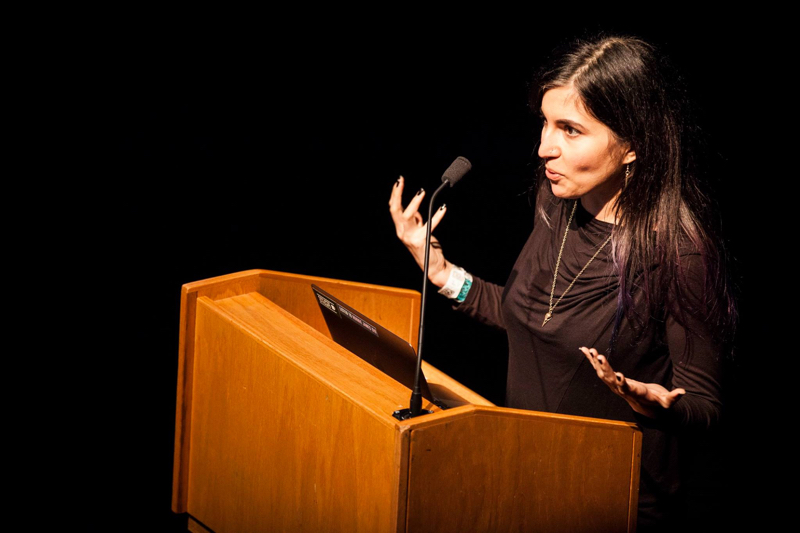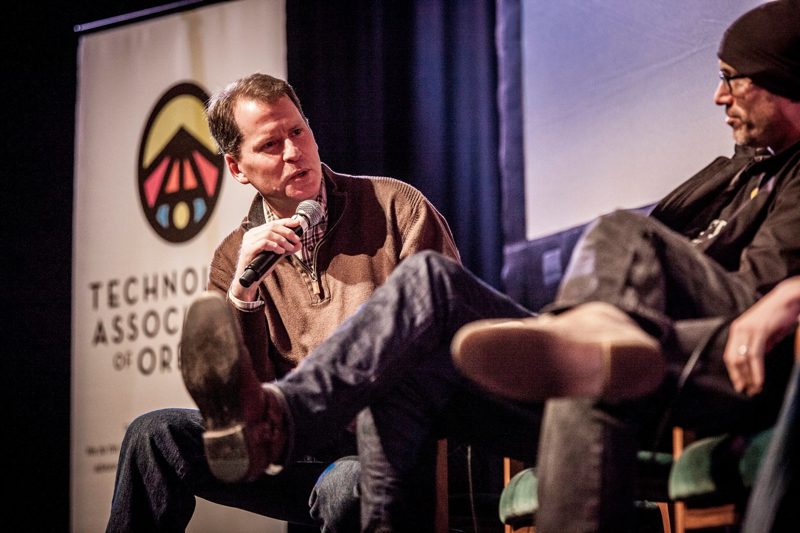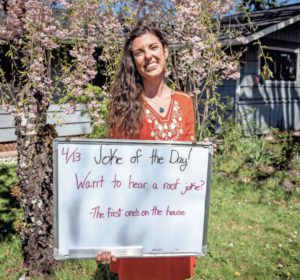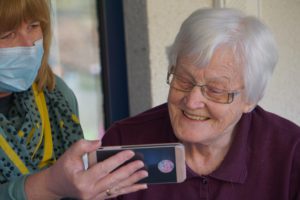Using Kickstarter to Build a Community
In his opening remarks at The Big Mix V2 event in March, Skip Newberry, president of the Technology Association of Oregon (TAO) sited 20% overall growth for tech companies operating in and out of Eugene and Springfield, Oregon.
Founded in the entrepreneurial spirit of the Oregon Trail, it’s no surprise the Willamette Valley is a modern-day haven for startups, venture capital, and business incubators evolving from the hacker and maker space revolution responsible for shifting our collective paradigm on the importance of skilled trades.
A mainstream—and viable—source of financial backing for new and established companies, Newberry added that Kickstarter crowd funding campaigns now account for 25% of investment within the same tech community.
On behalf of the TAO, Newberry secured Terry Romero, Outreach Lead for the Food & Craft community at Kickstarter, for the event’s keynote presentation. Romero’s insight and experience at Kickstarter is instrumental to the success of campaigns within the Silicon Shire and beyond.

Terry Romero at The Big Mix V2: Photo Credit Technology Association of Oregon
To begin, Romero emphasized the importance of creating an end goal that is readily achievable with the help of many people working towards a common purpose. She suggests using the phrase “join us” over “help us” and says never to beg.
Introductory videos should be authentic and not too polished; professionally made content runs the risk of inadvertently implying a large marketing budget. Individuals should remain humble; particularly when it comes to setting financial goals.
The median financial transaction on Kickstarter is $6500; asking for too much can convey a low probability of success. When in doubt, Romero added that it’s better to lower your campaign goals and remain confident in exceeding them.
The first and last three days of the campaign are the most important and Romero suggests targeting a marketing plan around these six cumulative days. To achieve the most meaningful results, she encourages individuals to connect with individuals who have run both successful and unsuccessful campaigns; emulating successes and avoiding pitfalls.
Adding to Romero’s sound advice, John Hull of the UO Foundation Seed Fund convened four panelists to reflect on their Kickstarter experience: Mike Whitehead (Finex cast iron skillets), Dane Wilcox (FYM Hot Sauce), Brian Jamison (XO Jumpdrive Studios), and John Betz (SEED: The Untold Story). Whitehead, Wilcox, Jamison, and Beltz each ran a successful Kickstarter campaign for their Portland-based companies.

John Hull and Panelists at The Big Mix V2: Photo Credit Technology Association of Oregon
All four panelists stressed the importance of strategic media exposure. Whitehead connected with journalists a minimum of one month before his campaign launched, providing news outlets with newsworthy information and interview quotes. Wilcox mailed samples of his hot sauce to influential print and digital journalists before his campaign began. Jamison used social media channels to promote his campaign, keeping a detailed record of key influencers and their overall influence and reach.
A final, and perhaps the most noteworthy and unanimous panelist takeaway, is using Kickstarter to build a loyal and engaged community (aka customer base).
Beyond successfully (or unsuccessfully) running a campaign, Kickstarter offers the ability to communicate with the individuals who express both a personal and financial interest in your idea, project, creation, invention, company…relationships that can exist well beyond a singular campaign.
While Cognitopia is not running any Kickstarter campaigns, we are proud to be one of the many thriving tech companies in the Silicon Shire / Willamette Valley. Thanks to TAO for an interesting and compelling event. We’re looking forward to The Big Mix V3.
Julie Henning has been with Cognitopia since 2015. In that time, she has been involved in customer support, training, marketing, documentation, social media, and data collection. Some of her favorite projects have been mentoring our videographer intern, Nate, and weekly classroom testing and curriculum development for the many students in the 4J Connections Transition program. She works closely with Eugene-based SLLEA (Smart Living, Learning & Earning with Autism) to integrate Cognitopia’s self-management tools into the organization and structure design input and support platform implementation. Professionally, Julie has over twenty years’ experience working in engineering, technology, software development, and journalism; a path made possible with two degrees in Technical Communication: a BS from the Milwaukee School of Engineering and a MS from Colorado State University. A single mom of three high schoolers (grades 9, 10, and 11), Julie has introduced Cognitopia to terms such as “sick” and “yeet,” while overseeing the office coffee consumption. In her free time, she enjoys playing recreational soccer, improv comedy, and traveling.



